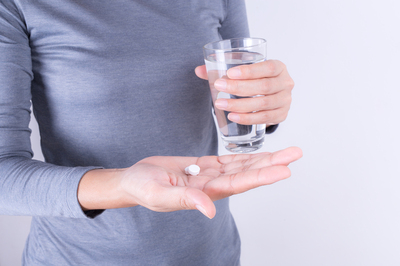When most people think of drug addicts, they usually think of street drugs like crack, cocaine, ice, ecstasy, heroin, marijuana, and LSD. However, the reality is that there’s an equal if not larger threat out there, and it may be lurking in your very own medicine cabinet. We’re talking about prescription drugs and prescription drug abuse. Here’s a closer look at the issue.

Just because a doctor prescribes it and a pharmacist fills it doesn’t mean it’s safe.
About Prescription Drug Misuse
“Misuse of prescription drugs means taking a medication in a manner or dose other than prescribed; taking someone else’s prescription, even if for a legitimate medical complaint such as pain; or taking a medication to feel euphoria (i.e., to get high),” says the National Institute on Drug Abuse (NIDA).
This phenomenon is a prevalent one. According to data from the Substance Abuse and Mental Health Services Administration Center (SAMHSA) for Behavioral Health Statistics and Quality, approximately 54 million people — that’s more than 20 percent of the country’s 12 and over population — have used medications, including painkillers, tranquilizers, stimulants, and sedatives, for non-medical reasons at some point in their lives.
Even more alarmingly? The United States Drug Enforcement Administration reports that more people report the use of prescription drugs than meth, heroin, and cocaine combined. This means prescription drugs trail only marijuana when it comes to substance abuse.
Understanding the Problem
While prescription drug abuse and addiction is a multi-factored problem, experts put ease of access at the top of the list. Also attributed as a cause, according to NIDA? “Misinformation about the addictive properties of prescription opioids and the perception that prescription drugs are less harmful than illicit drugs.”
And while prescription drug abuse is an equal opportunity affliction which can affect anyone, certain people are at particular risk, including women and older adults. The most at-risk segment of the population when it comes to the non-medical use of prescription drugs, however, is particularly eye-opening. Rates of misuse are highest among young people between 18 and 25 years of age with just under five percent reporting misusing prescription drugs in the past month.
Meanwhile, 1.6 percent of youth between the ages of 12 and 17 reported using prescription meds for non-medical purposes over the same period of time. In fact, after alcohol, drugs, and tobacco, non-medical prescription drugs top the list when it comes to 12th graders and drug use with six percent and two percent of high school seniors reporting non-medical use of Adderall and Vicodin, respectively, in the past year. While this is a problem in and of itself, the picture grows even more dire when you factor in that kids who misuse prescription drugs are more likely to use other drugs as well.
Seniors, meanwhile, face a different challenge when it comes to both medical and non-prescription medication use due to polypharmacy and the life-threatening complications that can result from the use of multiple medications — prescription, illegal, and over-the-counter — simultaneously.
Why It Matters So Much
Many people say to themselves, “Doctors prescribe them. How bad can they be?” However, this perspective is a dangerously misguided one. Millions of people visit emergency departments every year due to prescription drug misuse.

Will addiction follow?
Says the CDC, “Prescription opioids continue to contribute to the opioid overdose epidemic in the United States. More than 40 percent of all U.S. opioid overdose deaths in 2016 involved a prescription opioid, with more than 46 people dying every day from overdoses involving prescription opioids.”
Other troubling statistics include that over the last decade:
- Prescription drug overdoses have increased by 200 percent
- Prescription drug-related deaths now make up 36 percent of all suicides by poisoning
- Abuse of opioid painkillers has spiked by 400 percent
- The number of treatment admissions for prescription opioids has ridden by just under 300 percent
- 60 percent of all new pain pill users report having gotten the drugs from a family member or friend for free
Treating Prescription Drug Addiction
The good news? Prescription drug addiction is treatable. However, true recovery is an intensive and ongoing process. “Years of research have shown that substance use disorders are brain disorders that can be treated effectively. Treatment must take into account the type of drug used and the needs of the individual. Successful treatment may need to incorporate several components, including detoxification, counseling, and medications, when available. Multiple courses of treatment may be needed for the patient to make a full recovery,” explains NIDA.
Because addiction treatment is complex, involving both medical and behavioral aspects, it is best done under the direction of trained professionals. Contact us at St. Louis drug rehab facility Harris House today to learn about how our substance abuse programs have been helping addicts and their families for more than 50 years.







